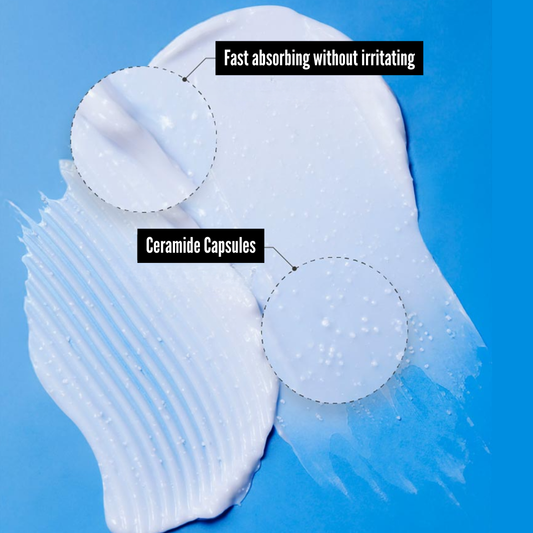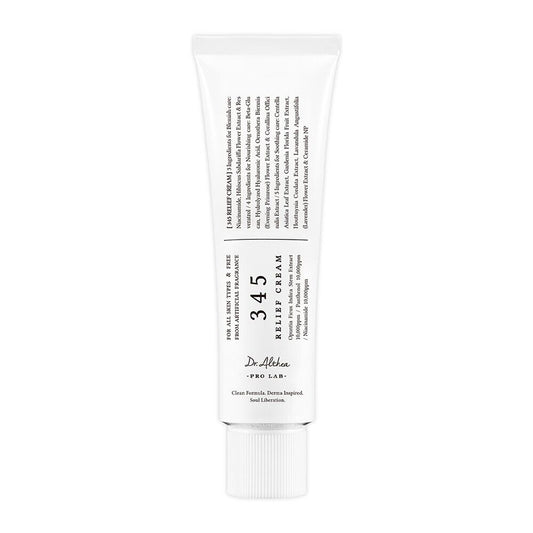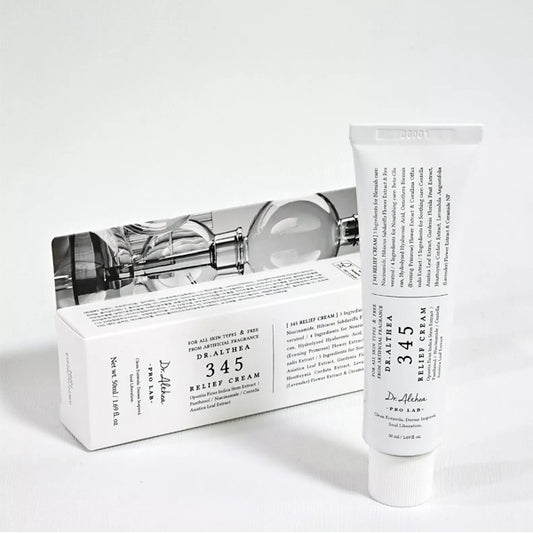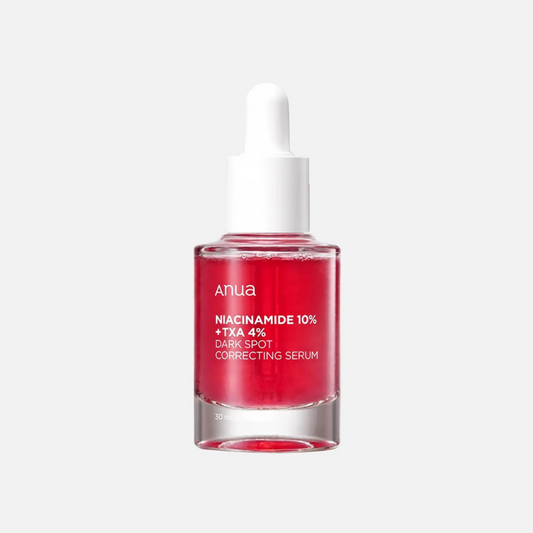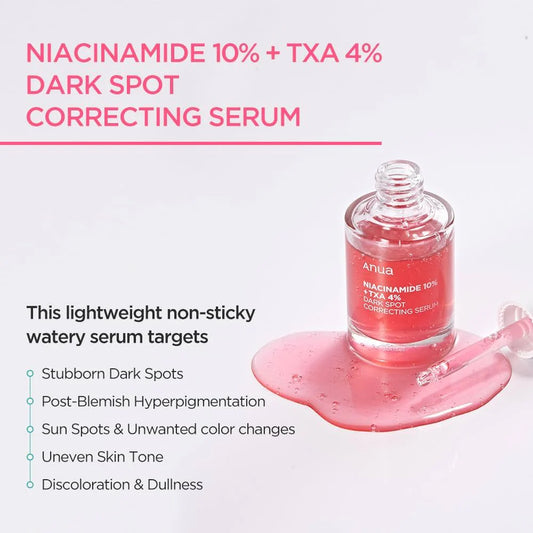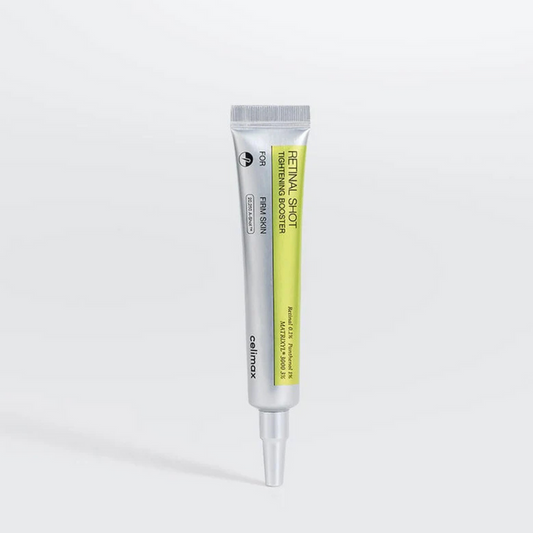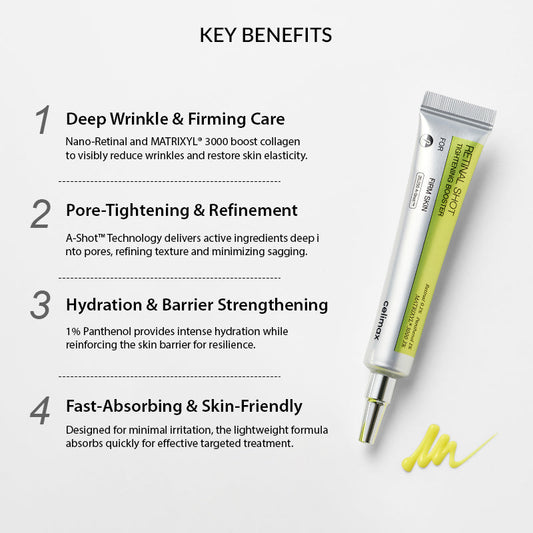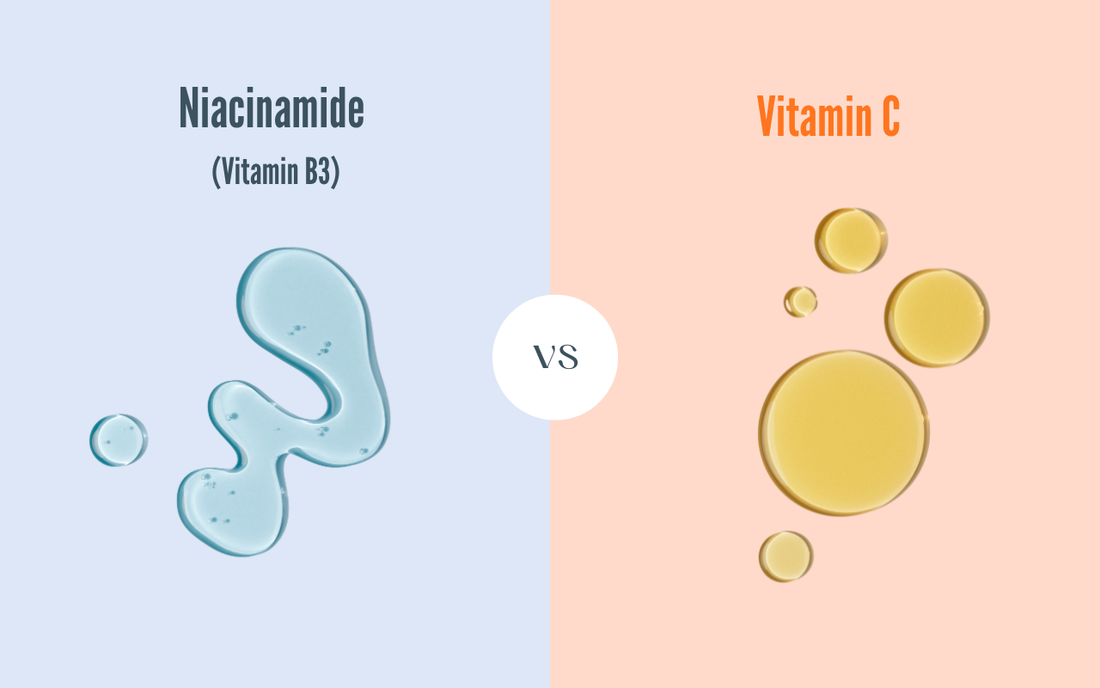
Niacinamide vs. Vitamin C: Which Skincare Ingredient Is Right for You?
Share
When you walk into a skincare store or scroll through beauty videos online, you'll probably hear about two superstar ingredients: Niacinamide and Vitamin C. Both of these ingredients can help make your skin look brighter, clearer, and healthier. However, they work in completely different ways to give you great results 1.
If you've ever wondered which one you should use—or if you can use both at the same time—this guide will explain everything you need to know in simple terms.
Understanding Vitamin C for Skin
What Is Vitamin C?
Vitamin C (also called L-Ascorbic Acid in skincare products) is a water-soluble vitamin that acts as a powerful antioxidant for your skin 3. Think of it as a protective shield that helps defend your skin from damage.
How Does Vitamin C Help Your Skin?
1. Protects Against Environmental Damage

Every day, your skin faces attacks from things like sunlight, pollution, and smoke. These create harmful molecules called free radicals that damage your skin cells and make you look older faster 3, 5. Vitamin C neutralizes these free radicals, like a superhero blocking the bad guys before they can cause harm.
2. Builds Collagen for Firmer Skin
Collagen is a protein in your skin that keeps it firm, smooth, and elastic—like a mattress spring that keeps everything bouncy. As you get older, your body makes less collagen, which leads to wrinkles and sagging. Vitamin C helps your skin produce more collagen, which reduces fine lines and keeps your skin looking youthful 3, 5.
3. Fades Dark Spots and Brightens Skin
Do you have dark spots from old acne, sun exposure, or uneven skin tone? Vitamin C interrupts the process that creates melanin (the pigment that causes these dark areas) 3, 5. Over time, this makes your skin tone more even and gives you a natural glow.
Vitamin C: The Good and the Challenging
The Benefits:
- Creates exceptional brightness and radiance 5
- Fights damage from sun and pollution 5
- Boosts collagen for firmer, younger-looking skin 5
- Works with sunscreen to maximize protection 3
The Challenges:
- Becomes unstable and loses effectiveness when exposed to light, heat, or air 3
- Can irritate sensitive skin, especially stronger formulas 3
- Needs special packaging (dark, airtight bottles) to stay effective 1
- May cause mild dryness or tingling when you first use it 3
Popular Vitamin C Products
medicube Deep Vita C Capsule Cream
The medicube Deep Vita C Capsule Cream is designed to target uneven skin tone and spots for a bright, even complexion.
Dr. Althea Vitamin C Boosting Serum
It targets dullness and hyperpigmentation, helping to fade dark spots and reduce inflammation for a smoother, more luminous appearance.
Understanding Niacinamide for Skin
What Is Niacinamide?
Niacinamide (also called Nicotinamide) is a form of Vitamin B3, which is an essential nutrient your body needs 2. In skincare, niacinamide is known for being gentle, versatile, and calming—making it suitable for almost everyone.
How Does Niacinamide Help Your Skin?
1. Repairs and Strengthens Your Skin Barrier
Your skin has a protective outer layer called the skin barrier. Think of it like the walls of a house—it keeps moisture in and harmful things out. Niacinamide helps your skin produce more ceramides, which are natural fats that strengthen these walls 2, 4. When your barrier is strong, your skin stays hydrated and becomes less sensitive to irritation.
2. Controls Oil and Shrinks Pores
If you have oily skin or large pores, niacinamide can help. It regulates how much oil (sebum) your skin produces 2, 4. When oil production is balanced, your pores look smaller and your skin stays clearer.
3. Calms Redness and Inflammation
Niacinamide has anti-inflammatory properties, which means it soothes irritated, red, or inflamed skin 2. This is especially helpful if you have acne or sensitive skin that gets red easily.
4. Evens Out Skin Tone
Niacinamide prevents melanin (skin pigment) from moving to the surface of your skin 1, 4. This helps fade hyperpigmentation—areas of darker skin caused by acne scars, sun damage, or other factors—and creates a smoother, more even complexion.
Niacinamide: The Good and the Challenging
The Benefits:
- Very stable—doesn't break down from light or heat 2
- Minimizes the appearance of pores 4
- Controls oil production (great for acne-prone skin) 4
- Reduces redness and strengthens skin 2
- Gentle enough for sensitive skin
The Challenges:
- May cause mild flushing or slight irritation if concentration is too high (over 10%) 2
- Shows slower results for severe dark spots compared to Vitamin C 1
- Focuses more on protection and repair than fighting free radicals 1
Popular Niacinamide Products
anua Niacinamide 10% +TXA 4%
ANUA Niacinamide 10% + TXA 4% Dark Spot Correcting Serum is a lightweight, watery formula packed with a powerful blend of 10% Niacinamide and 4% Tranexamic Acid to target hyperpigmentation and dark spots.
Beauty of Joseon Glow Serum - Propolis+Niacinamide
The Beauty of Joseon Glow Serum revitalizes your complexion, providing a radiant, youthful glow.
Niacinamide vs. Vitamin C
To simplify your choice, think of their primary roles:
- Vitamin C is the aggressive defender: It’s an antioxidant that fights off external threats (like pollution and UV damage) and promotes change (like boosting collagen and brightening dark spots) 3, 5.
- Niacinamide is the calm repair crew: It’s a cellular communicator that works from the inside out to stabilize the skin barrier, manage oil production, and reduce inflammation and redness 2, 4.
| Feature | Niacinamide (Vitamin B3) | Vitamin C (L-Ascorbic Acid) |
|---|---|---|
| Main Purpose | Repairs skin barrier, calms irritation, balances oil 2 | Antioxidant protection, builds collagen, brightens skin 3, 5 |
| Best For | Oily, sensitive, acne-prone, or red skin 2 | Sun damage, dullness, fine lines, and dark spots 5 |
| Stability | Very stable and easy to use 2 | Breaks down easily in heat and light 3 |
| Best Time to Use | Morning or night (very flexible) 2 | Morning (works best with sunscreen) 3 |
| Sensitivity | Gentle for most people | Can irritate sensitive skin at first 3 |
Can You Use Niacinamide and Vitamin C Together?
Yes, absolutely! There's an old myth that these two ingredients don't work well together, but that's based on outdated research. Modern skincare formulas are designed to be stable, and these two ingredients actually work beautifully as a team 1, 6.
- Vitamin C protects your skin from environmental damage during the day (prevention) 3
- Niacinamide strengthens and repairs your skin barrier (maintenance and repair) 2
- Together, they attack dark spots from two different angles, giving you faster, better results 1, 6
How to Use Both Ingredients Together
Option 1: Morning and Night Split
- Morning: Apply Vitamin C serum, then moisturizer and sunscreen (for maximum environmental protection) 3, 6
- Night: Apply Niacinamide serum, then moisturizer (for repair and balance)
Option 2: Layer Them Together
- Apply the thinnest, most watery product first (usually Vitamin C serum)
- Wait about one minute for it to absorb
- Apply the second serum (Niacinamide)
- Follow with moisturizer 6
FAQs
Which ingredient is better for large pores?
Niacinamide is the winner for pores. It controls oil production and strengthens the structure around your pores, making them look noticeably smaller 4.
Can I use these on sensitive skin?
Yes. Niacinamide is known for being very gentle and often reduces sensitivity 2. If you have sensitive skin and want to try Vitamin C, start with a lower concentration (around 10%) and always test it on a small area first before applying it to your whole face 3.
Which one is better for anti-aging?
Both are excellent but work differently 1: Vitamin C is essential for boosting collagen production and addressing existing wrinkles and fine lines 5. Niacinamide maintains a strong moisture barrier and keeps your skin healthy and resilient against aging 2
How long does it take to see results?
Results vary by person and concern, but generally:
- Vitamin C: You may notice brighter skin in 2-4 weeks; dark spot fading takes 8-12 weeks
- Niacinamide: Redness and oil control improve in 2-4 weeks; pore size and texture improve in 8-12 weeks
Do I need to wear sunscreen with these ingredients?
Yes, always! Sunscreen is crucial when using any skincare ingredients, especially Vitamin C. While Vitamin C helps protect against sun damage, it's not a replacement for sunscreen. Use broad-spectrum SPF 30 or higher every morning.
The Bottom Line: Which Should You Choose?
You don't have to choose! Both niacinamide and Vitamin C offer unique benefits that complement each other perfectly.
Choose Niacinamide if you prioritize:
- Oil control and smaller-looking pores 4
- Calming redness and irritation 2
- Strengthening sensitive or damaged skin 2
- A gentle, stable product 2
Choose Vitamin C if you prioritize:
- Fighting environmental damage and preventing premature aging 3, 6
- Brightening dull skin and fading dark spots quickly 5
- Building collagen for firmer skin 5
- Maximum antioxidant protection 3
Choose both if you want:
- Comprehensive protection and repair 1, 6
- Faster results for dark spots and uneven tone 1, 6
- The best anti-aging routine possible
Resources
- Cetaphil, How to Layer Vitamin C and Niacinamide: A Beginner's Guide to Glowing Skin (https://www.cetaphil.in/skincare-tips/skincare-guides/how-to-layer-vitamin-c-and-niacinamide-beginner--guide-to-glowing-skin.html)
- Verywell Health, What You Need To Know About Niacinamide (https://www.verywellhealth.com/health-benefits-of-niacinamide-4570966
- Cleveland Clinic, What Can Vitamin C Do for Your Skin? (https://health.clevelandclinic.org/vitamin-c-serum
- Everyday Health, Niacinamide 101: Potential Benefits, Known Risks, and More (https://www.everydayhealth.com/skin-beauty/niacinamide/
- PubMed Central, Topical Vitamin C and the Skin: Mechanisms of Action and Clinical Applications (https://pmc.ncbi.nlm.nih.gov/articles/PMC5605218/)
- Olay, Can You Use Niacinamide and Vitamin C Together? (https://olay.co.uk/skin-care-tips/anti-ageing/can-you-use-niacinamide-and-vitamin-c-together)
Remember: Everyone's skin is different. Start with one ingredient, use it consistently for a few weeks, and then consider adding the second. Pay attention to how your skin responds, and adjust your routine accordingly.






